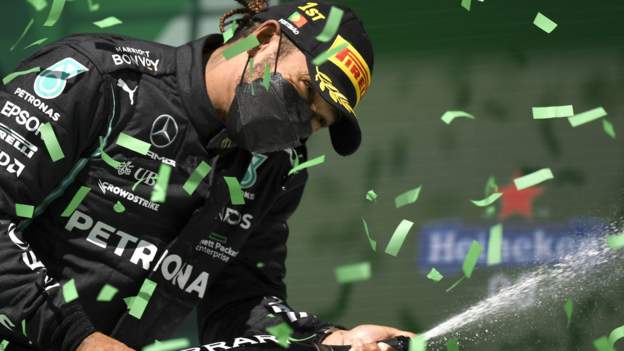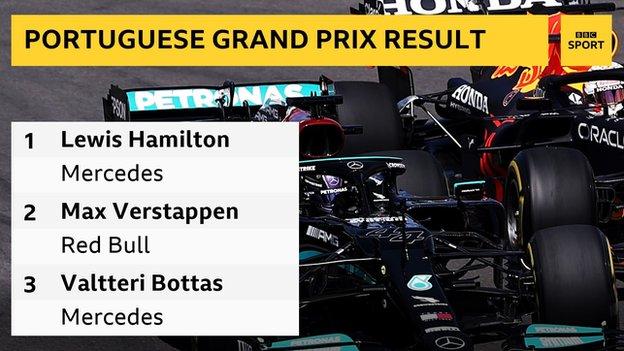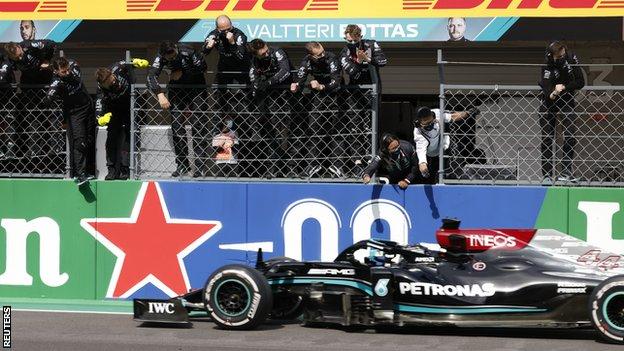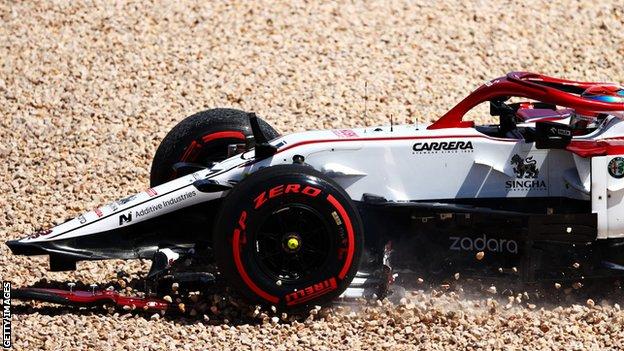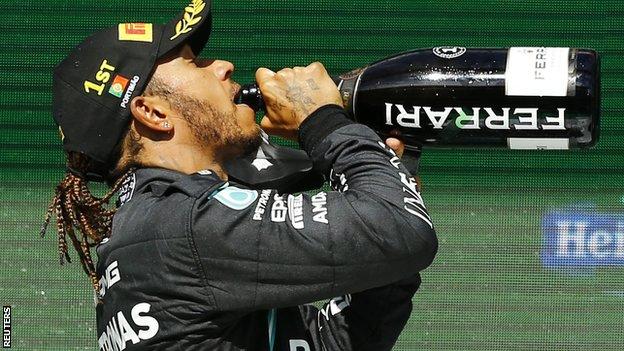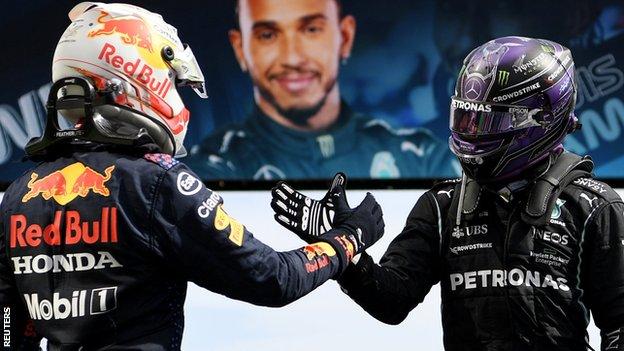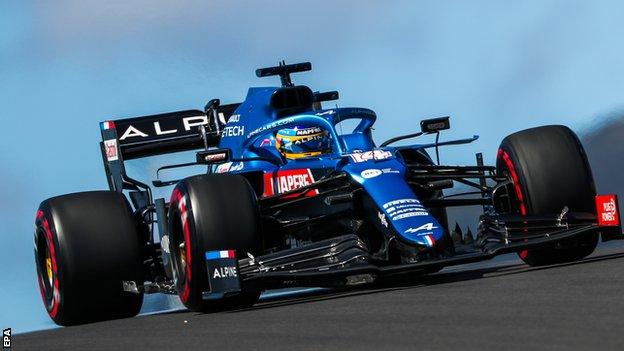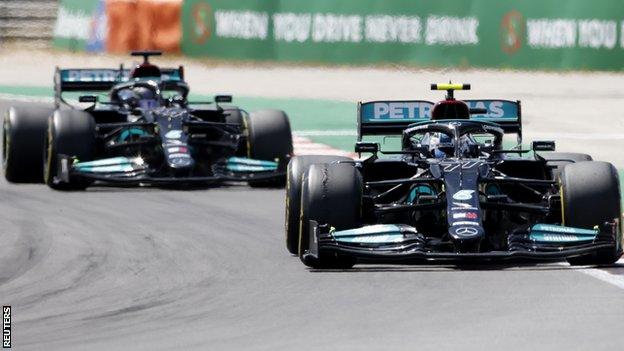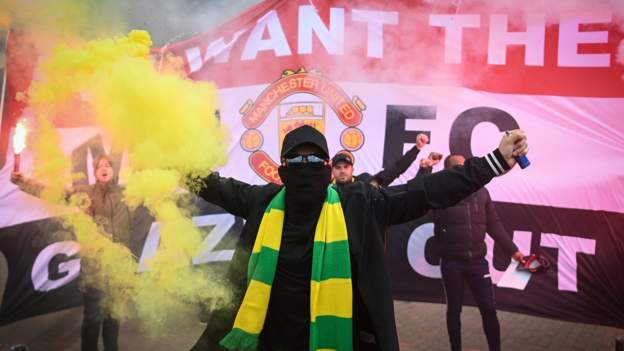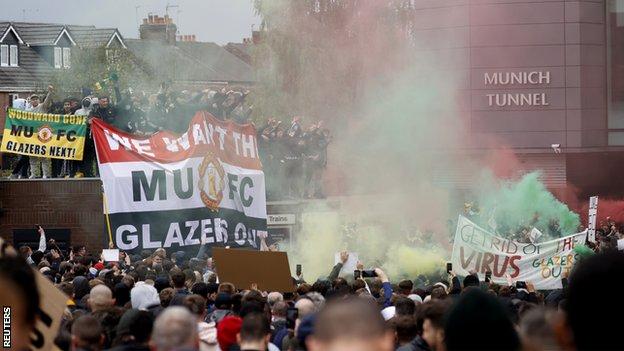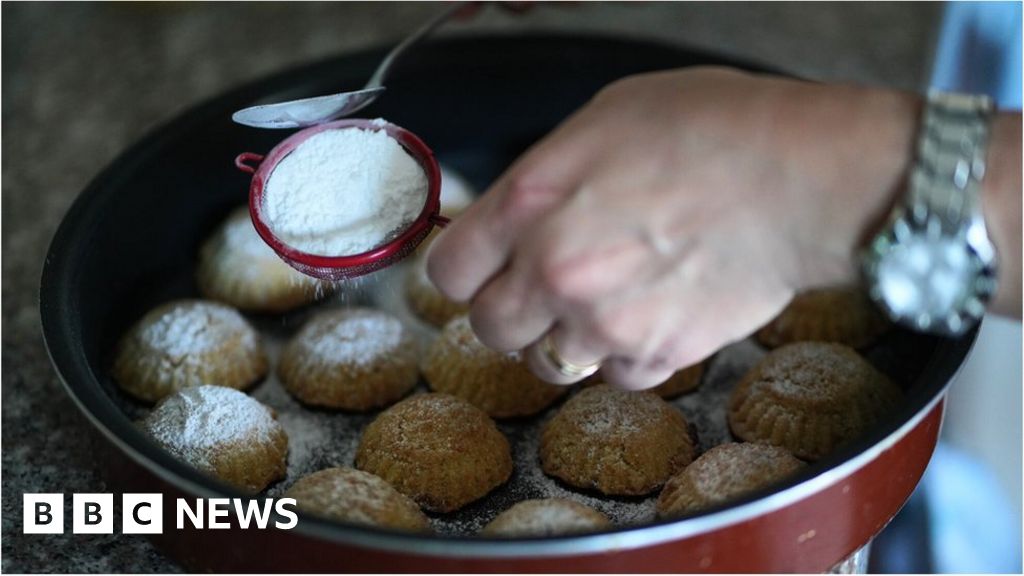
Chelsea 4-1 Bayern Munich (agg: 5-3): Fran Kirby double helps Blues reach Women's Champions League final
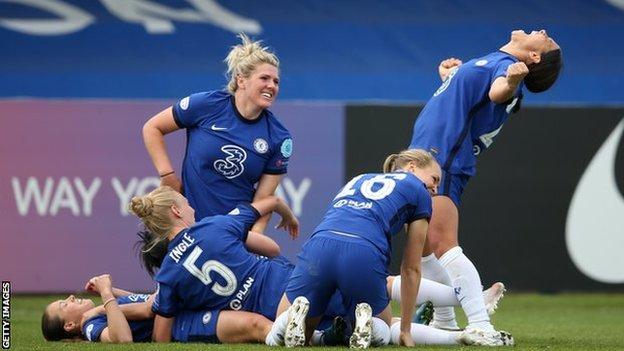
Late goals by Pernille Harder and Fran Kirby took Chelsea through to their first Women's Champions League final at the expense of Bayern Munich in a captivating game.
The Blues trailed 2-1 after the away leg but Kirby's breakaway strike put them in control on away goals.
Sarah Zadrazil's stunning shot made it 1-1 but Ji So-yun restored the lead.
With extra time looming Harder headed in and, as Bayern pressed, Kirby scored into an empty net to seal victory.
Kirby ran half the length of the pitch to ensure Chelsea's progress in a dramatic finish to an astonishing game at Kingsmeadow.
The goal sparked wild scenes of celebration among players and staff, with a tearful manager Emma Hayes overwhelmed by leading Chelsea through to the final against Barcelona in Gothenburg on Sunday, 16 May.
Harder's fine near-post header from Jess Carter's exquisite free-kick had put the Blues on the verge of becoming the first English side since Arsenal in 2007 to reach a European final.
Bayern piled forward in the final stages, causing blind panic on several occasions as they desperately sought the second away goal that would have taken them through.
But the hosts somehow survived and, with keeper Laura Benkarth upfield Kirby made sure of a monumental win.
Kirby class shines through again

England striker Kirby was the game's outstanding player in a match full of standout performances by Chelsea.
Magdalena Eriksson's experience shone though in defence having returned after injury and the trio of Meleanie Leupolz, Sophie Ingle and Ji provided the perfect balance in midfield.
Leupolz and Ingle's tenacity and ability to read danger enabled Ji's creative talents to flourish and in turn allow Kirby, Kerr and Harder to cause mayhem in the final third.
Kirby started and finished the scoring, putting the Blues ahead inside ten minutes with a typically composed finish after a sumptuous one-two with Kerr.
Bayern responded impressively and Carter had to make a vital block to stop Lineth Beerensteyn's goalbound effort, before Zadrazil's swerving 25-yard strike via the underside of the bar levelled the scores.
Ji's follow-up strike after her own free-kick was blocked restored the lead, the South Korean's shot bouncing into the turf, going through a crumbling wall and finding the far corner.
And a place in showpiece final was assured thanks to Harder and Kirby.
Chelsea's quadruple quest continues
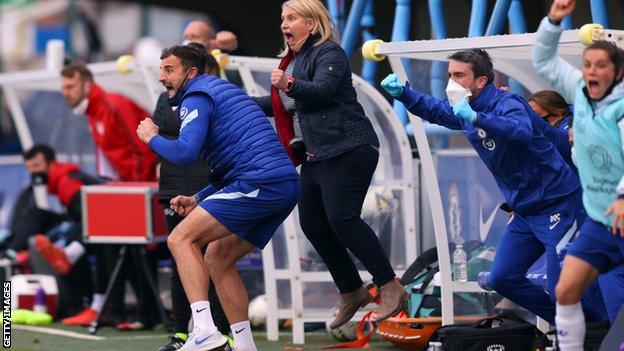
Boss Hayes was overcome with emotion, having twice taken Chelsea to the semi-finals where they lost to Wolfsburg in 2018 and Lyon in 2019.
She was on the Arsenal coaching staff when the Gunners won the Uefa Women's Cup - as the Women's Champions League was then known - in 2007.
Victory over Bayern means a remarkable quadruple is still feasible.
Wins over Tottenham and Reading in their remaining two Women's Super League fixtures will ensure back-to-back domestic league titles.
The Blues have already won the League Cup, thrashing Bristol City 6-0 in the final, and also have a fifth-round FA Cup tie at home to Everton looming.
Sincery Best Jokes
SRC: https://www.bbc.co.uk/sport/football/56935257
powered by Blogger News Poster





